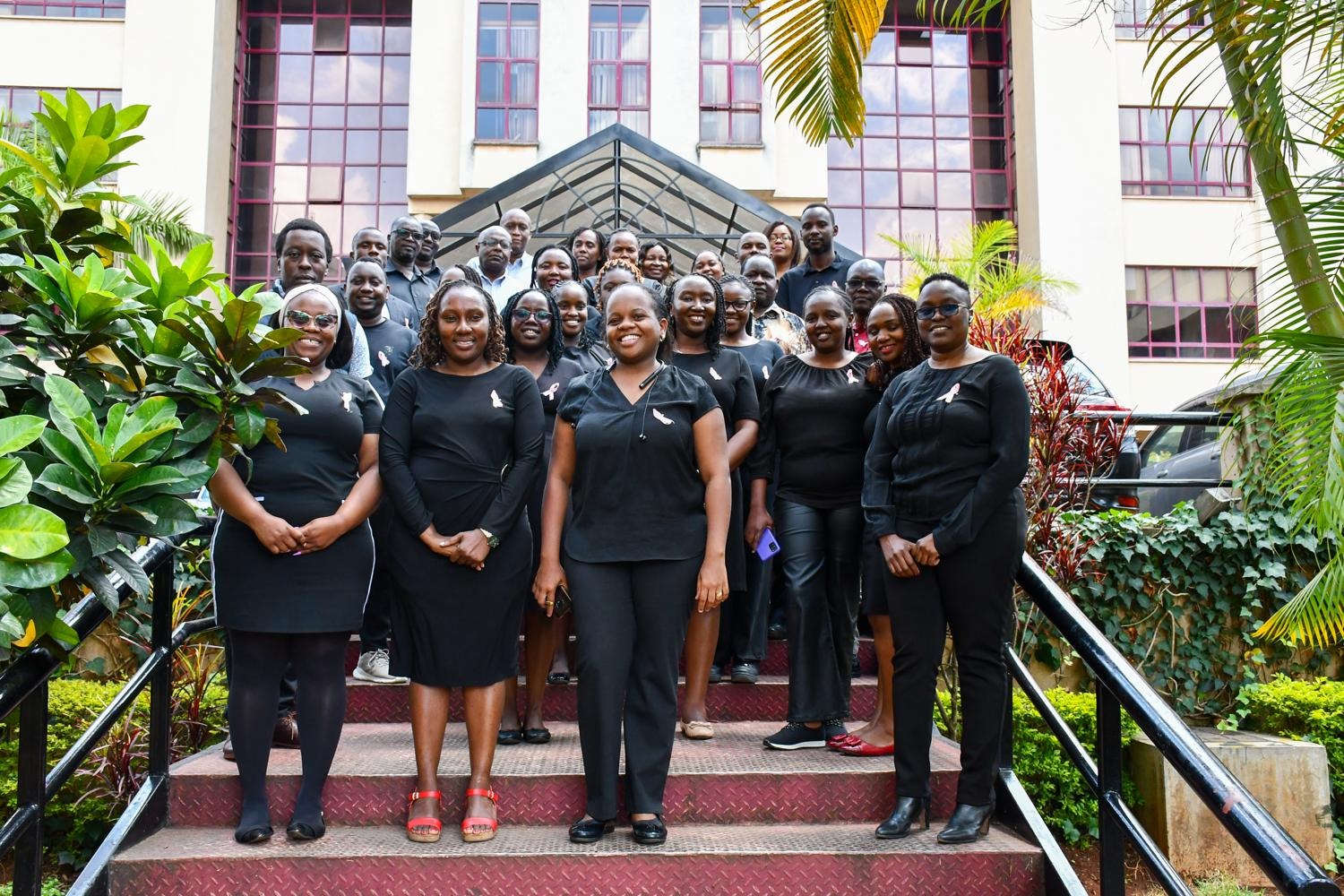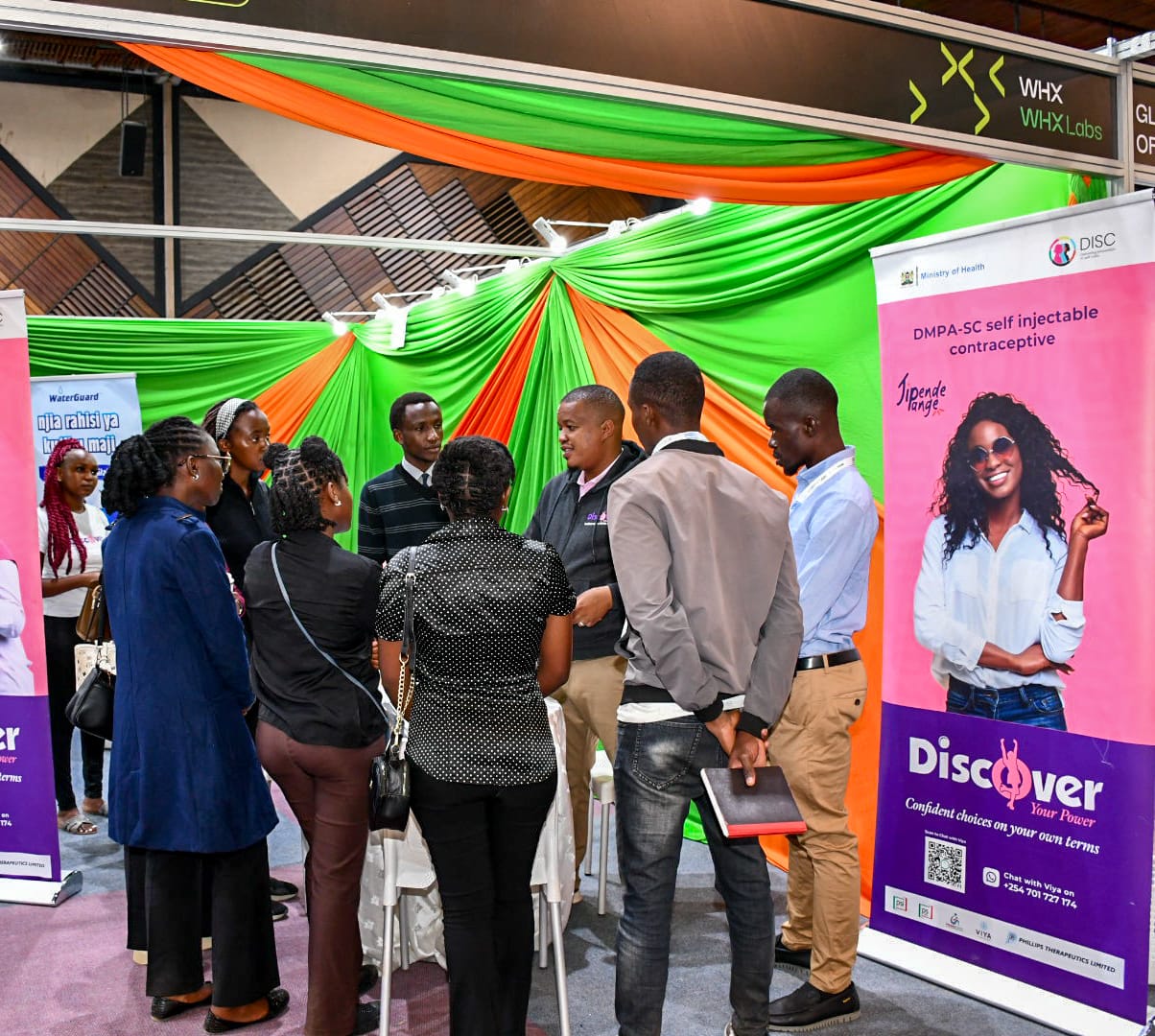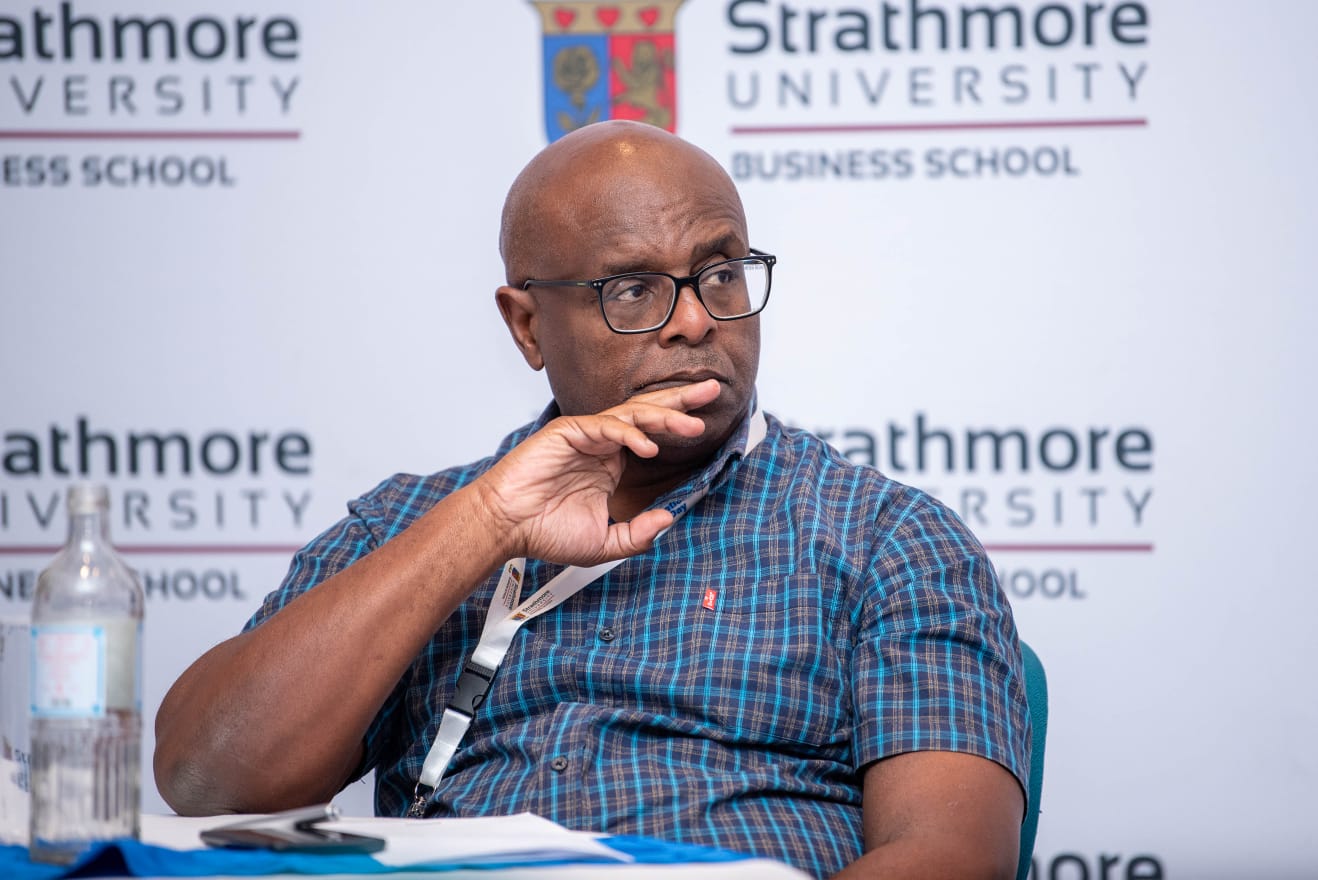Nestled near the border of Kenya and Uganda is Busia County, one of the smallest in the country with a population of about 900,000 people, but also one of the biggest malaria-endemic areas with a prevalence of 39%. The warm temperatures and high humidity create favorable conditions for mosquito breeding, especially during the rainy seasons when stagnant water accumulates. This leads to a high burden of illness and mortality, the effects of which are mostly felt by the vulnerable in the community, that is, children under five years of age and pregnant women.
The disease places a significant strain on the local healthcare system, with factors such as distance to the healthcare facilities often pausing a challenge, but that is where Community Health Promoters (CHPs) such as Jonathan Mwanga come in. Jonathan has 13 years of experience as a CHP, with eight of them in Community Case Management of Malaria (CCMM) after he underwent training by Population Services Kenya in 2016. He covers 174 households in Mundembu village, Nambale subcounty, which has a population of 964 people. Community health promoters like Jonathan have been trained to recognize the symptoms of Malaria and conduct rapid diagnostic tests.
“Sometimes I visit a household and find that everyone is sick and unable to visit the facility, which is 5 kilometers away. Out of the 10 households that I visit on a monthly basis, I will find at least eight positive cases of Malaria.”
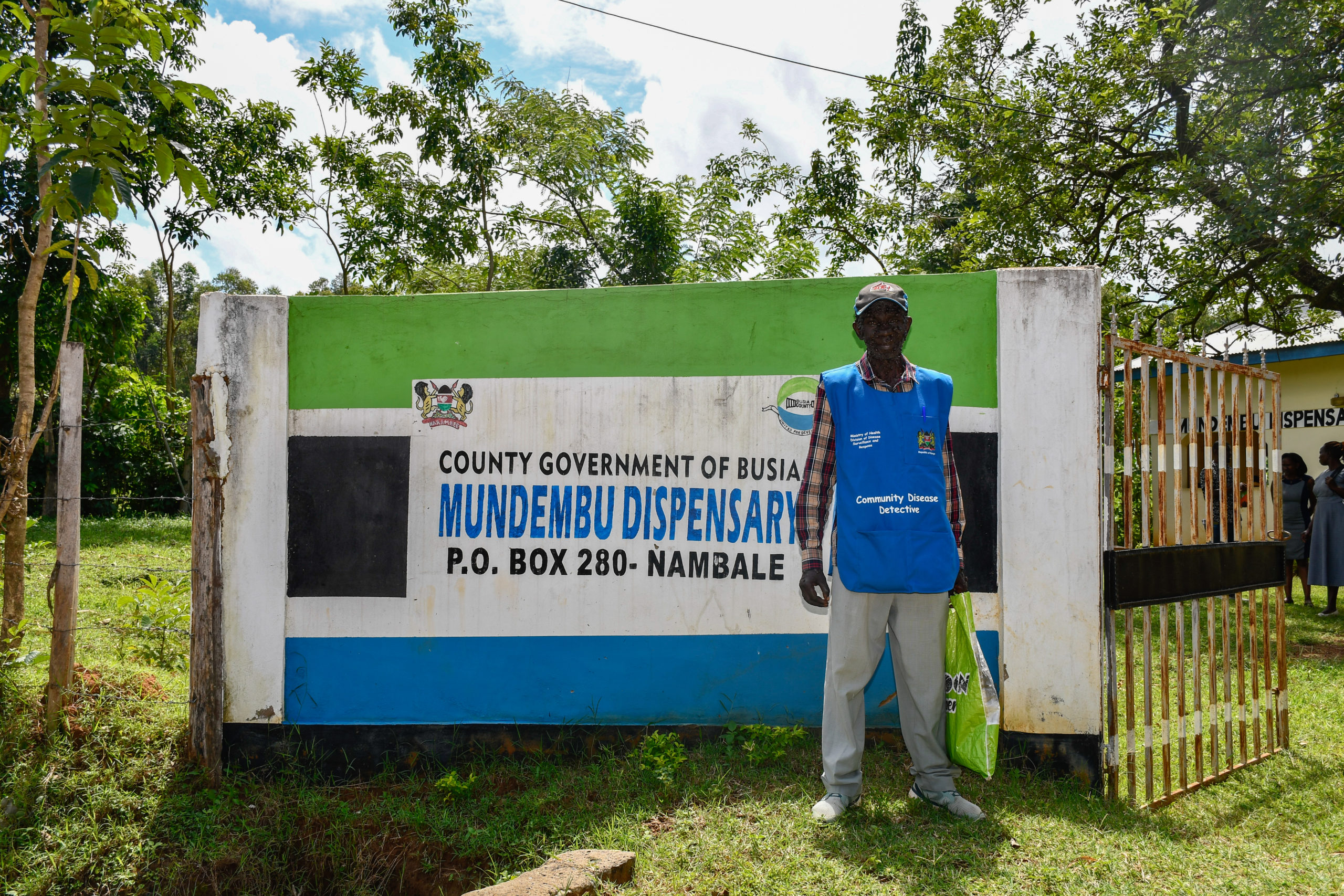
A typical day for Jonathan starts in Mundembu Dispensary, where he collects his treatment and testing commodities. This is after he got a call from two households that there was an ailing seven-year-old boy and a 54-year-old woman in his area of coverage. Through the winding roads of Nambale sub-county, Jonathan pointed out each household in which he has saved a life, acknowledging that he does face challenges in his quest for better healthcare.
“You need to understand that we are deep in the village; some people still believe that they fall sick due to being given the evil eye by their neighbor and that the only way to get better is by visiting a witch doctor to reverse the effects of the evil eye.”
True to his word, on getting to the first household of the 54-year-old woman who required his services, we were informed that she had opted to visit the traditional doctor instead to ‘get bones thrown at her stomach, as they believed that this was where the ailment was. Deeply disappointed, Jonathan led us to the second household, hoping for a better result.
On getting to the second household, we found a seven-year-old boy who had been feeling unwell since the previous morning and was therefore unable to go to school. The boy presented with headaches, chills, and a fever and tested positive for Malaria. Jonathan administered the treatment and advised the boy’s mother on the timing and required dosage.
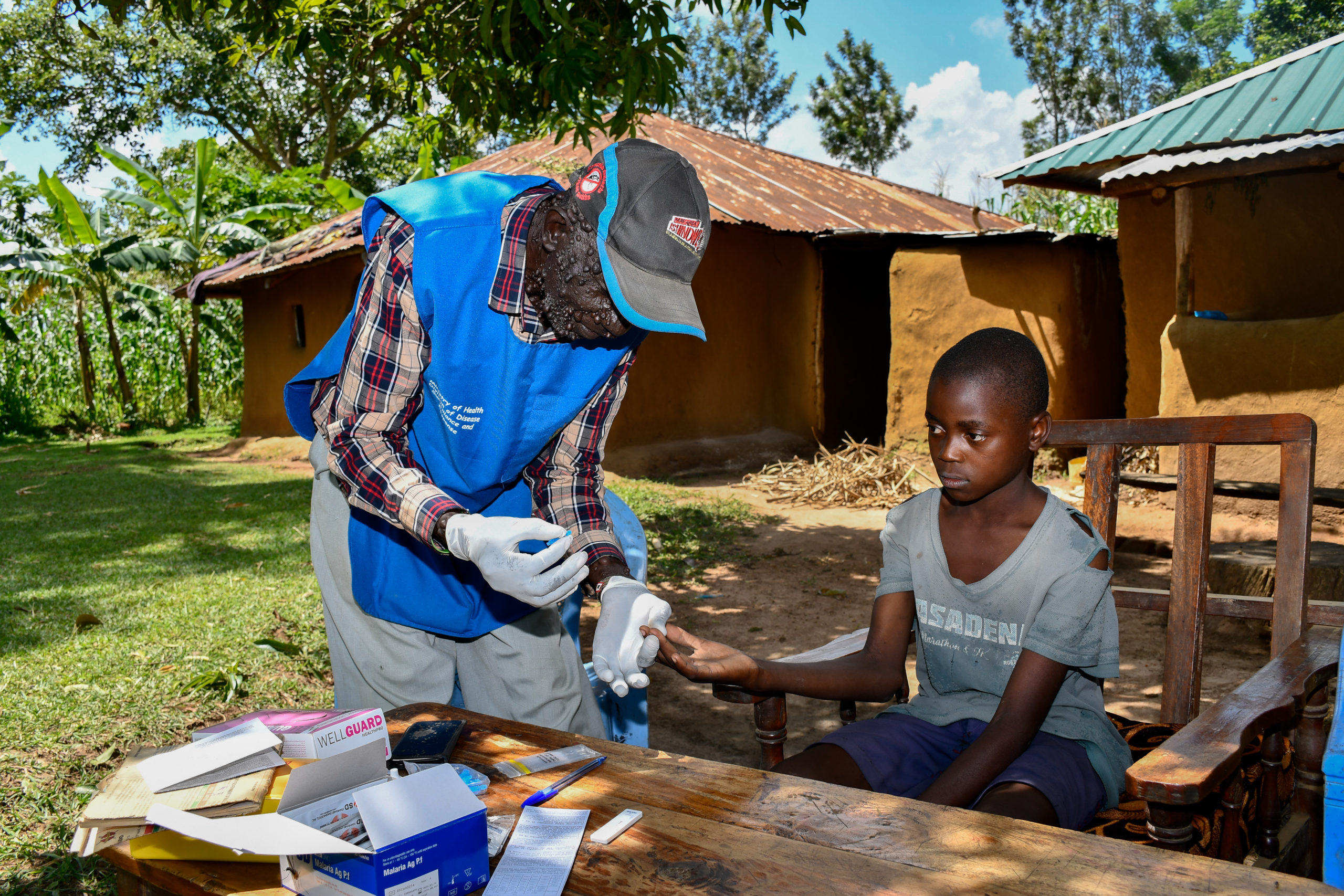
Jonathan’s role in his community is to educate members about the transmission of Malaria, its symptoms, and its methods of prevention. He conducts regular community health talks and organizes community awareness campaigns to promote the use of insecticide-treated bed nets, proper sanitation, and the importance of seeking early diagnosis and treatment.
One of the biggest challenges he faces in creating awareness about the use of mosquito nets is that some members of the community prefer to use them in the creation of a ‘kitchen garden’, forgetting that it is one of the best methods of prevention against Malaria. After diagnosis, Jonathan takes it upon himself to ensure that his patients complete their prescribed dosage by conducting follow-up visits during which he addresses any concerns or complications that may arise. His final task is to ensure that he collects and presents data on the Malaria cases in his community to the health authorities for proper surveillance and monitoring of Malaria trends.
PS Kenya is a proud partner in the fight against Malaria in Busia County funded by The Global Fund. The organization works closely with the local health authorities to support the strengthening of community case management of malaria through the use of CHPs such as Jonathan. The CHPs ensure that there is timely response and proper intervention strategies to combat the disease. In the year 2022 alone, the CHPs tested 186,480 cases and treated 151,276 individuals. Together, we can make significant strides towards a malaria-free future where communities are protected against the burden of this disease.

